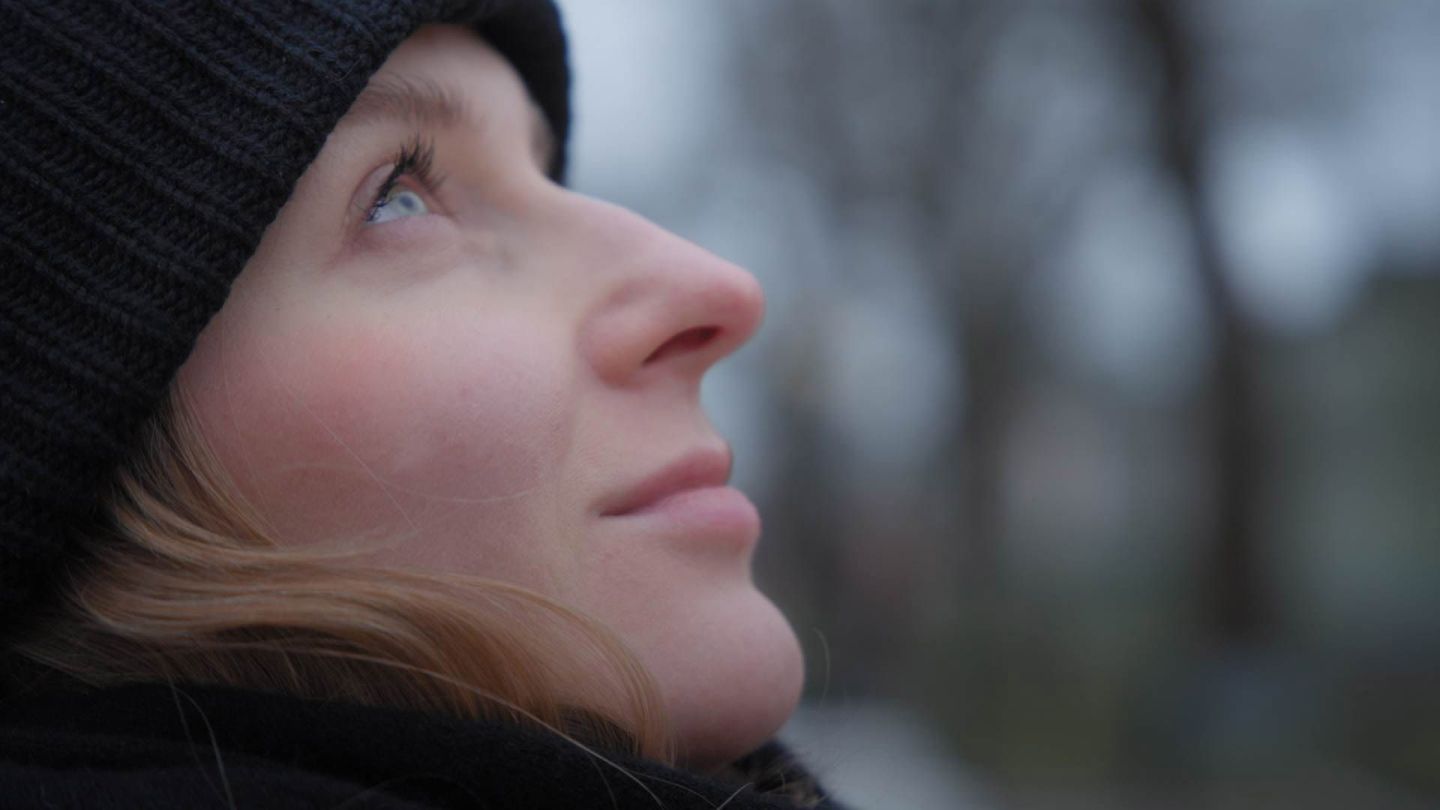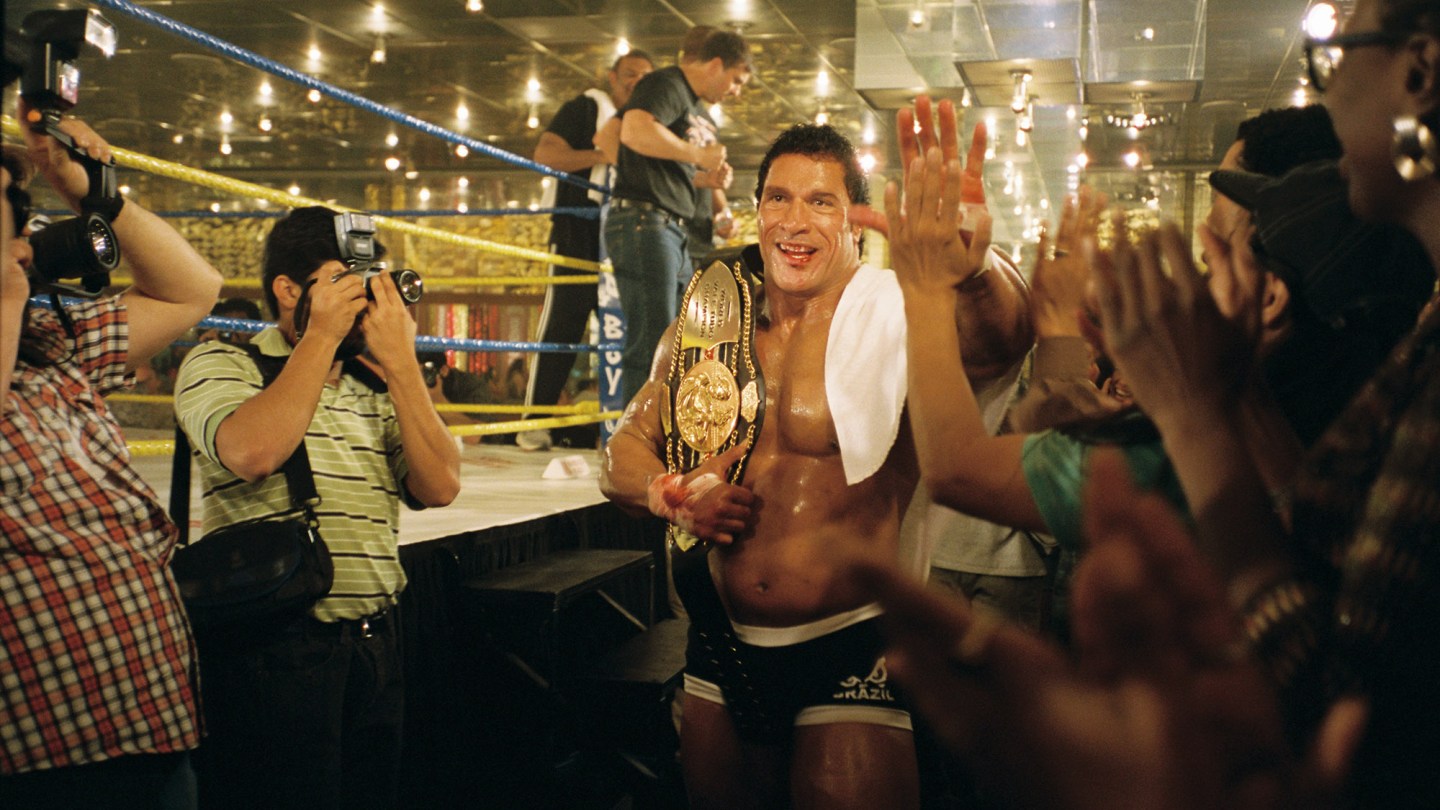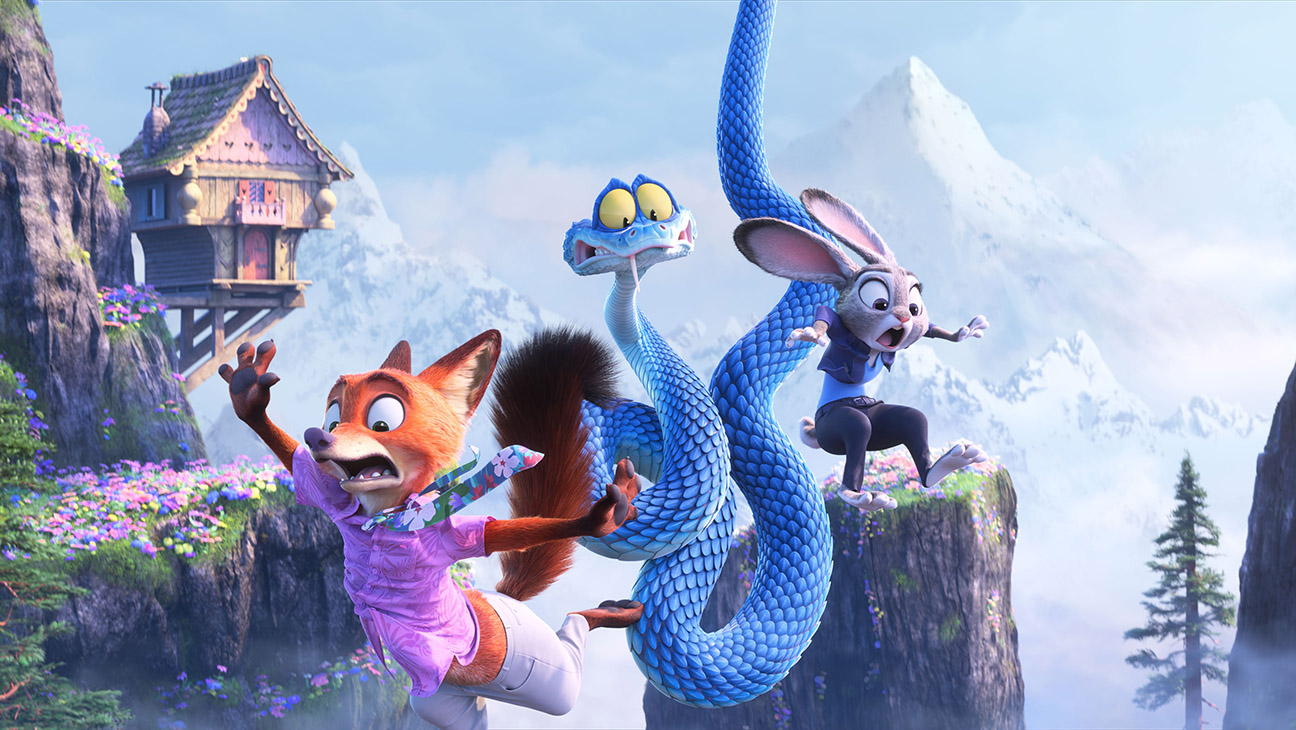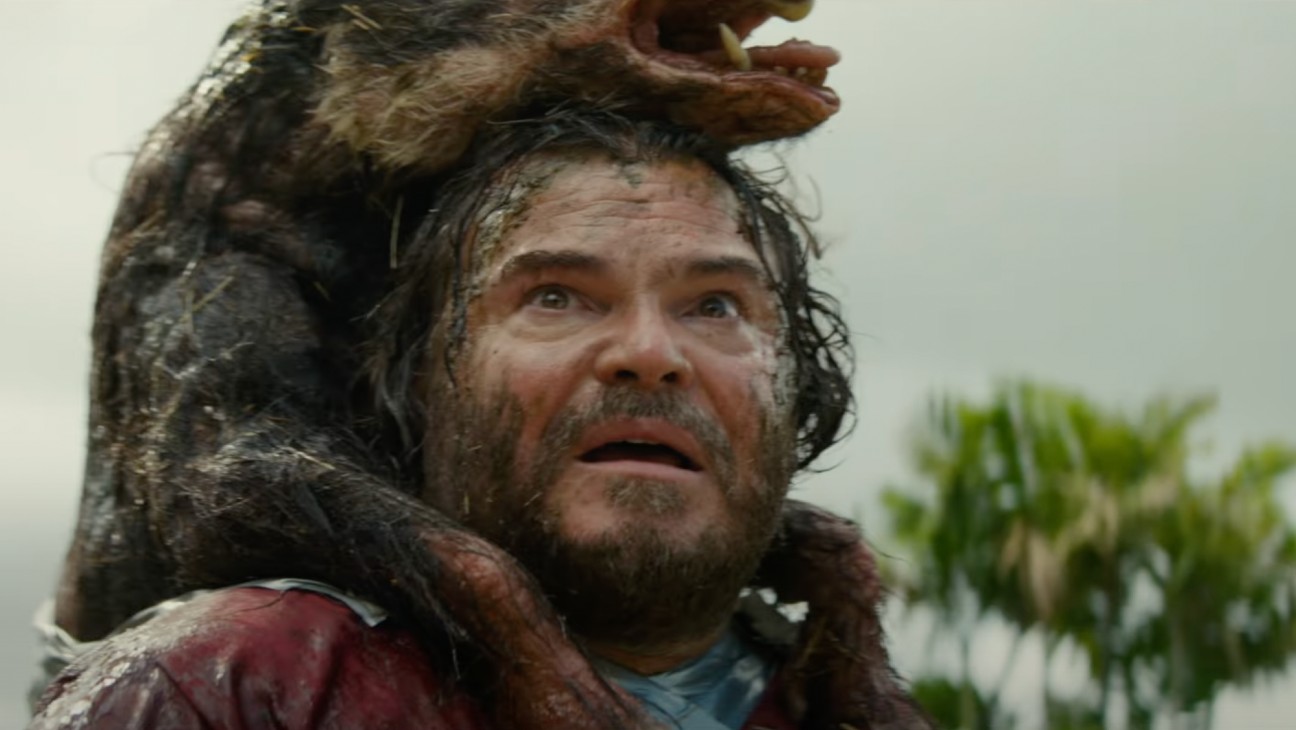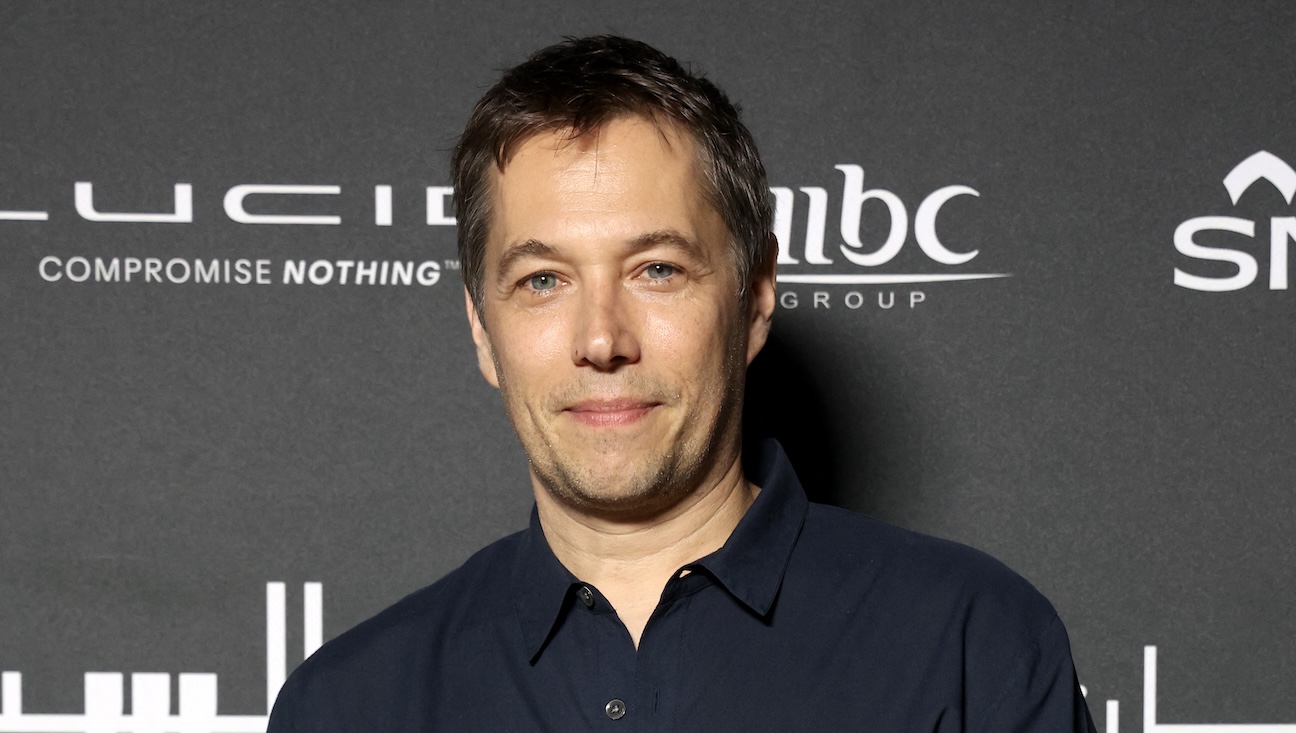If you ever find yourself wanting to make a documentary about a revolution but you can’t be there in person, you may want to ask Volia Chajkouskaya for insight. The Belarusian filmmaker emigrated to Estonia in 2018, and she will world premiere her feature documentary Not Made for Politics in its capital, Tallinn, on Saturday.
Screening in the Doc@PÖFF Baltic Competition program of the 29th edition of the Tallinn Black Nights Film Festival (PÖFF), the film tells the story of three women who have emerged as central figures speaking out against the regime of Alexander Lukashenko during the 2020 uprising and beyond – and of the filmmaker herself.
Lukashenko, who has been called “Europe’s last dictator,” is the first and only president of Belarus since the office was established in 1994. International monitors have not deemed any Belarusian elections as free and fair, except for the first-ever, which he won. When he remained in power despite allegations of vote-rigging in a 2020 election, the country experienced its largest anti-government protests during his rule.
“As women lead Belarus’ fight for freedom, a filmmaker in exile confronts fear and finds her voice,” notes a synopsis for the doc. “While thousands in Minsk rose up against the brutal regime of Alexander Lukashenko and rallied behind opposition leader Sviatlana Tsikhanouskaya, Volia Chajkouskaya felt the same pulse across borders. Unable to return home, she became both observer and participant, organising solidarity actions in Tallinn and gradually stepping into her own film as a subject.”
THR asked Chajkouskaya about the genesis of Not Made for Politics, her views on a potential regime change, dictatorships around the globe, and
Why did you want to make this film and take us inside the story of women defying the Belarusian regime of Alexander Lukashenko?
When the protests in Belarus in 2020 started, I was in Tallinn finishing my studies. But I was also actively involved in the volunteer activist movement to support free and fair elections in Belarus. I was very hopeful in the beginning, because out of the blue, there were many strong candidates for the presidency. I was like wow, in a country where there is no freedom of speech, there is finally some hope – there are new faces, new candidates who are eager to make a change for the better. But then, unfortunately, almost all major male candidates were either arrested or pushed outside the country.
But luckily Sviatlana Tsikhanouskaya, one of my film’s main characters, came on stage to take the place of her arrested husband Siarhei Tsikhanouskya and continue his presidential campaign. She was so brave to do it, despite the danger and having no experience whatsoever. Then more women joined Sviatlana and supported her campaign. It was so inspiring and unprecedented! It became symbolic, powerful, even artistic!
And more “ordinary” women were organizing female marches after the election day on August 9th, when the regime killed several people, injured and arrested hundreds, and organized a three-day internet blackout… Women went out on the streets [in] massive [numbers] to protect the men, who apparently suffered the most from the police violence, and expressed their protest. After female marches, which became iconic in the Belarusian revolution 2020, of course, the regime started to arrest women too and torture them too, the same as men.
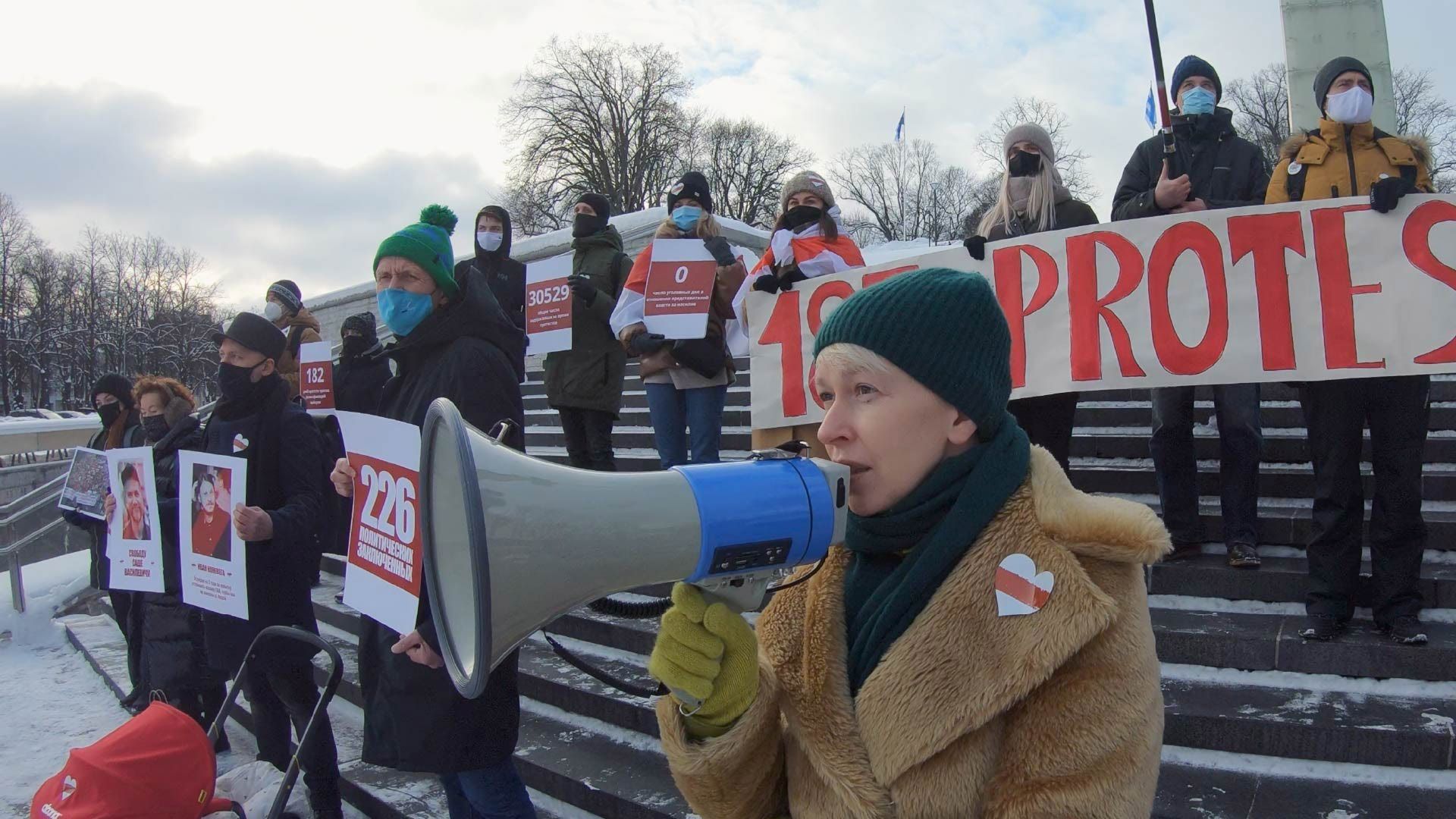
For me, looking into the story of specifically female resistance against patriarchal tyranny was the most inspiring [theme]. Belarus, in terms of statistics, might look like a progressive country in terms of women’s rights and women’s presence. I.e., there are a lot of women in the Belarusian parliament, a huge percentage of women are getting higher education in Belarus. But do women really have the power in parliament? I mean, men who oppose Lukashenko don’t have the power there either, but you get what I mean, right? We are talking about a dictatorship.
It’s all “marketing’ of the regime to sell Belarus as a democratic country to the West. In the film, I wanted to look into this juxtaposition when women, wives of political prisoners, stand up to protect their husbands to somehow dissolve this myth of women being weak and passive, which exists a lot in my homeland.
I love how the title Not Made for Politics and the film itself also share your personal story and the struggle with thetraditions of women being expected to remain silent. How much of a journey of empowerment was the film for you and some of the women you met on the journey?
The whole process was extremely empowering for me. Spending time with my characters was really a support [system] for me, when I felt powerless to do something from a distance, in exile. Both politically and personally, on a human level. And of course, I wanted to express my solidarity, participate, and help them in any way, too. That is why I am also one of the characters in the film, as I wanted to share this burden with my characters, this responsibility – show them that I am not only observing them in their vulnerabilities, but also opening myself up. I am equal with them, not looking from above with my camera.
And, of course, for the women in my film, as well as for me, five years is a long way. It’s a “character’s journey” for all of us: the world has changed, Russia attacked Ukraine, our lives have changed, kids grow older, many things have happened. I don’t want to reveal too much so as not to spoil the film. A lot has happened! And it’s all part of life and part of the film.
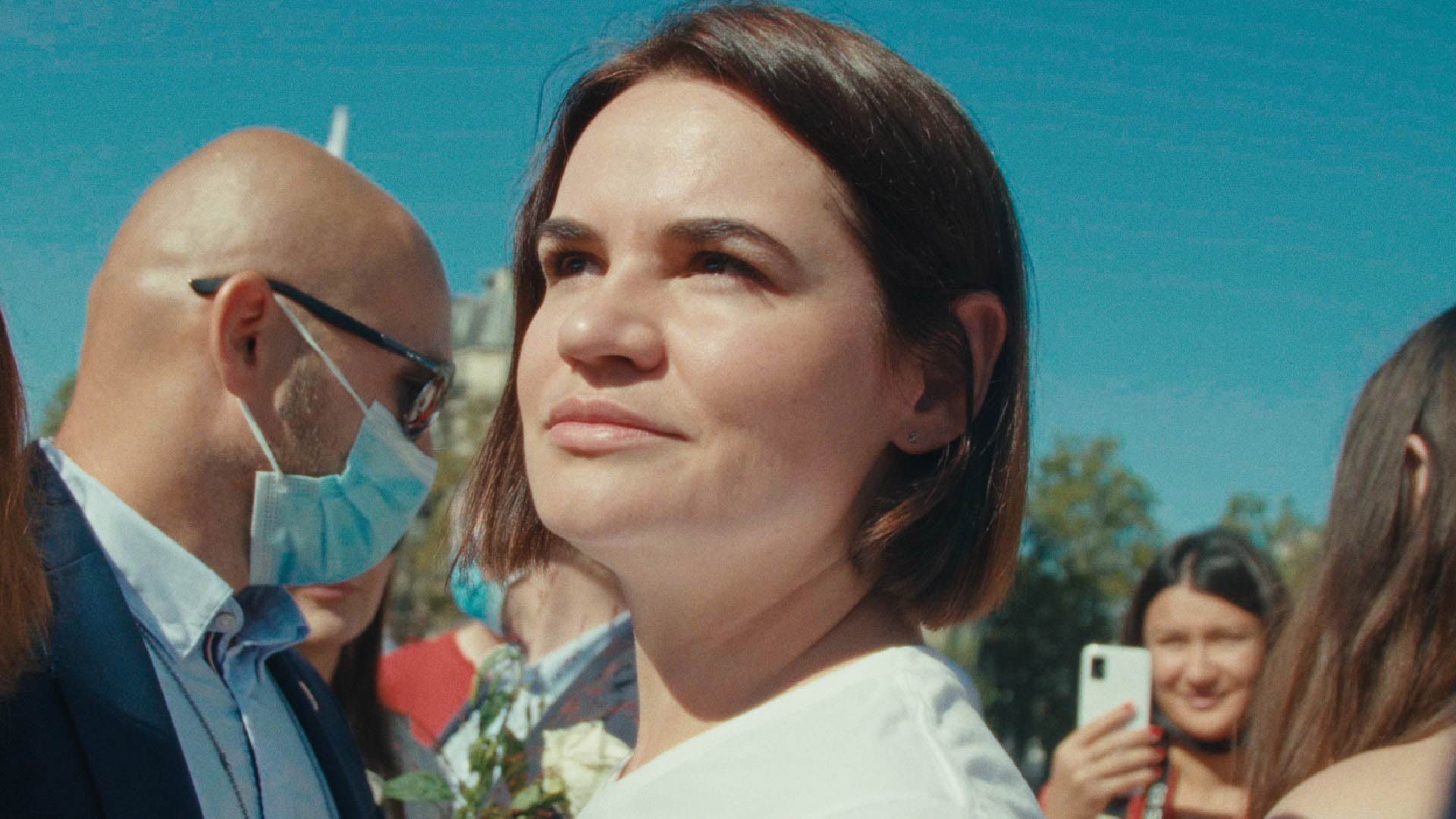
I could not only look at political agendas; in a way, it’s boring for me. When I started this film, I strongly believed that personal is political and that all art is political in one way or another. Even if one does not talk about it directly. I still believe this is the case. Even if one is silent – it’s a political choice that has its “why-s.”
It was important for me to stay true to the values I started this film with. And I will always elevate women. And I only regret that the screen time of one film and my own human capacity are so limited [that I can’t] show more names, more women – all of the brave, courageous women who resist and fight.
After the 2020 Belarus uprising, protests and uprisings have lost momentum. How do you see developments in Belarus since then?
Politically, I think, yes, it’s gone. Now, as politicians like to say, “we are waiting for a new window of opportunities.” And we must be ready for this, so it’s better not to waste time, take small steps every day, believe, and hope. I really think that hope has become a political tool in today’s reality. And we must hope. And where there is hope, there is light.
Looking back, it was not easy to keep the momentum working for the people. It was a “peaceful revolution,” as we call it, and the regime was killing and injuring protesters with weapons. It’s very easy to lose momentum in these circumstances. At the same time, the regime was pushing out of the country the most outspoken opposition leaders like Sviatlana. So there are no leaders inside the country. But there are still heroes in Belarusian prisons. Like [flutist and political activist] Maria Kalesnikava, who destroyed her passport at the border and refused to leave. She is going to be out one day. And she is going to be a rockstar!
Do you still see a path to regime change?
I am not a politician and can not foresee the future. I wish! But, as I mentioned, I believe that hope is a political tool today. And we have to keep on hoping and staying awake, whether we are inside or outside Belarus.
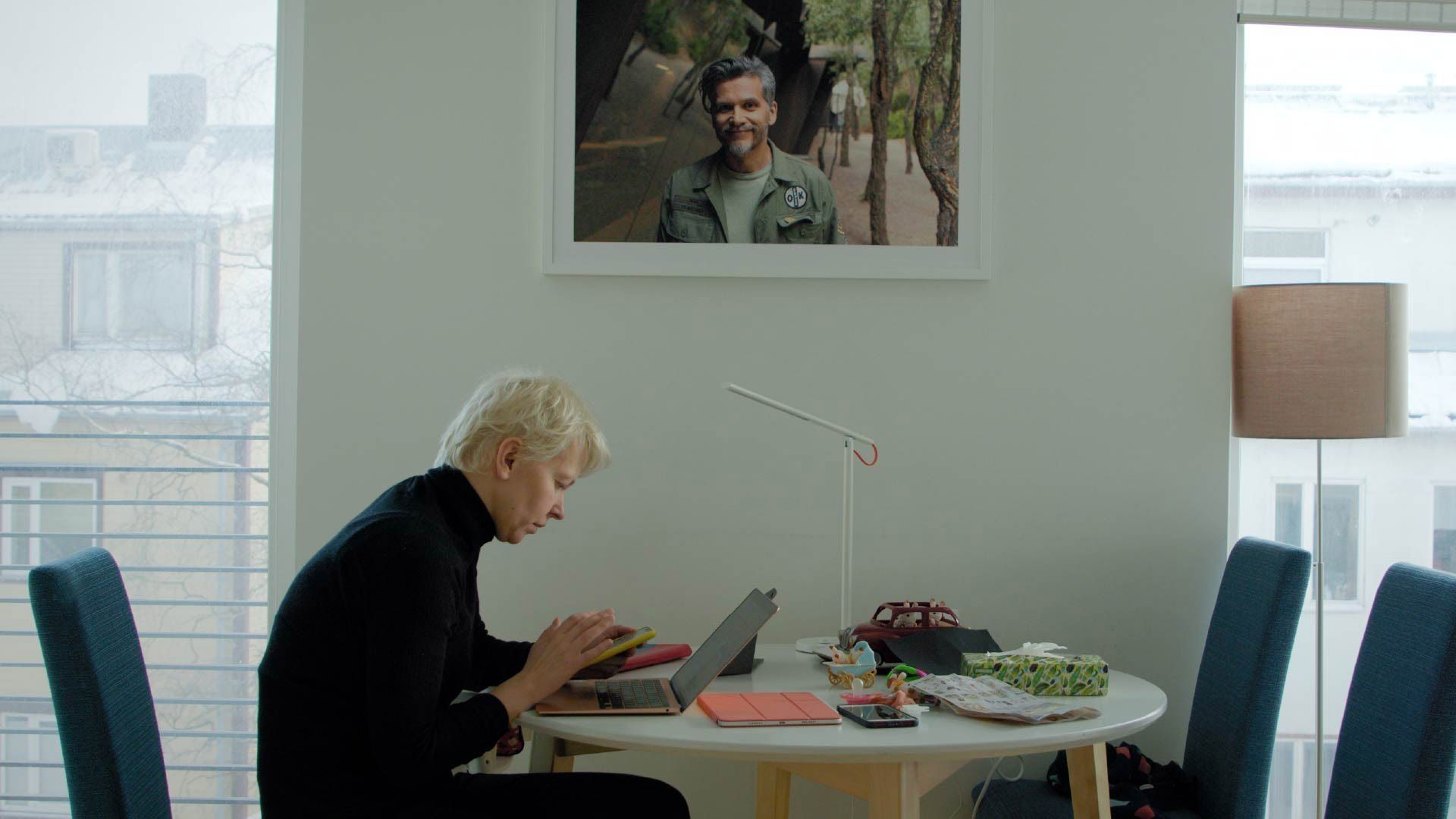
What’s your take on the state and “health” of dictatorships around the world now?
It’s a shame that, unfortunately, democracies are in danger around the world, and that most of the world actually doesn’t live in democracies,[ but] rather in autocracies. And we, people from democratic countries, are very privileged to live in a democracy, and we must protect it. We must be proactive, but not aggressive; courageous and uncompromising, but loving. Then we will be able to “charm” people who are looking for “salvation” in the right-wing movements and bring them back to common sense, equality, and democracy.
Exactly because dictatorships are so toxic, they can not exist forever. They inevitably collapse. It’s a matter of time. But many things in the world go in circles.
How long have you been living in Estonia now, and how great is it to world premiere the film at the Tallinn festival?
I have been living in Estonia for almost eight years now. I finished film school here, I got a Master’s Degree in Documentary Film at the Baltic Film and Media School in 2020. And I am very happy to be premiering at Tallinn Black Nights Film Festival. It’s a big A-class festival that gives a lot of exposure. And they just introduced separate documentary sections. And they pick very special films. So I am honored and proud to be in the program together with other amazing authors.
How great is it to have HBO involved, and will the film be shown on HBO in the U.S.?
I feel very lucky to have HBO on board. I am very grateful to Hanka Kastelicova and Tereza Bona Keilova for being really supportive through this five-year-long journey and really being super involved in the production and creative process. It was an amazing process indeed, being able to discuss the story with them, brainstorm, and discuss sensitive matters. They are real professionals with a totally unique experience that our industry crucially needs.
The film was also done in collaboration with HBO from central and Eastern Europe, and it will be available in Europe only. We also have ARTE on board for France and Germany, as well as RTS in Switzerland. As of now, the film is still looking for a home in North America, and we are working with our sales partner Cinephil on securing further exposure there and in the rest of the world.

